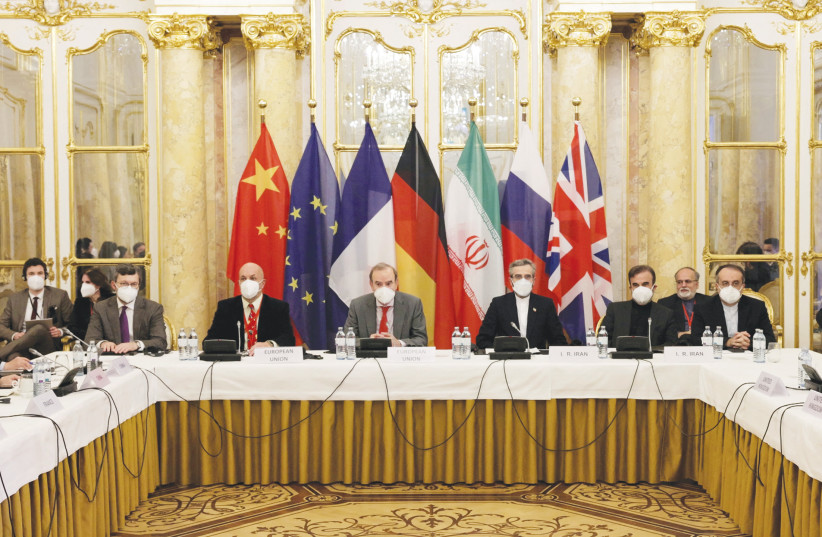WASHINGTON – Richard Nephew, Rob Malley’s deputy special envoy for Iran, is no longer serving in his role, a senior State Department official confirmed late on Monday. Malley is the lead negotiator in talks with Iran in Vienna. According to the official, Nephew “remains a highly valued State Department employee.”
The Wall Street Journal first reported on Monday that Nephew had left the team and had not participated in the Vienna talks since early December, citing differences of opinions within the team. According to the report, two other members of the team have stepped back from the talks because they also wanted a harder negotiating stance.
“Personnel moves are very common a year into an administration,” a senior State Department official said. “We are not going to get into specifics of our internal policy discussions.” The official noted, however, that working on the Iranian file “requires many difficult, closely balanced decisions on which there can be reasonable disagreement.
“The senior-most levels of our Government have given careful consideration to these choices, weighed multiple views, and settled on a policy,” the official continued. “Special Envoy Malley and his team are diligently and professionally executing that policy.
“The special envoy has an outstanding team, including his other deputy, Jarrett Blanc, senior advisor and former US ambassador to Israel Dan Shapiro, a group of longstanding State Department career employees, and interagency representation including the Departments of Energy, Treasury and Defense,” the official said.

Nephew’s exit comes as the US and Iran are holding indirect negotiations in Vienna seeking to restore the 2015 nuclear agreement.
Earlier on Monday, during the State Department’s press briefing, spokesperson Ned Price reiterated that the US is open to meeting directly with the Iranians as part of the Vienna negotiations.
“We have consistently held the position that it would be much more productive to engage with Iran directly on both JCPOA negotiations and on other issues,” Price said. “This extends to bilateral as well as multilateral formats. Meeting directly would enable more efficient communication, which is urgently needed to swiftly reach an understanding on a mutual return to compliance with the JCPOA.
“We’ve made this point before, but given the pace of Iran’s nuclear advancements, time is running very short until the nonproliferation benefits that the JCPOA conveyed as initially drafted and implemented in – drafted in 2015 and implemented in 2016 are outweighed by the nuclear advancements that Iran has made,” Price continued. “So we are seeking to conduct this diplomacy urgently, and we’ve been consistently very clear that being able to engage directly would serve those purposes.”
“This is not the first time we’ve made this point,” Price emphasized. “We have made this point consistently up until now. The Iranians have insisted on the indirect format in Vienna. We have long noted the fact that indirect talks, especially on an issue of this complexity and of this importance, [are] a hindrance. So our position has been clear.”
